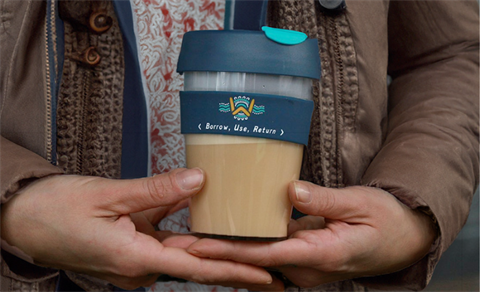Reducing waste and circular economy

What is the Circular Economy?
A circular economy is one where no resources are wasted, materials are kept at their highest value for as long as possible and nature is regenerated. Processes like maintenance, reuse, refurbishment, remanufacture, recycling, and composting help retain value. Designing items to last and to be able to participate in all these activities is at the heart of a circular economy.
The circular economy addresses climate change and other global challenges, like biodiversity loss, waste, and pollution. It unlinks economic activity from the consumption of finite resources, addressing climate change, biodiversity loss, waste, and pollution. Using renewable energy and materials, the circular economy is a resilient system that is good for business, people, and the environment.
What is the linear economy?
To understand why we need to change to a circular economy, you first need to understand where we are now. In our current linear economy resources are extracted from the environment, processed into goods, used, then discarded. It’s a one-way conveyor belt, where natural resources are being depleted on one side and waste is building up on the other. This is not sustainable long-term.
The circular economy is based on three principles, driven by circular design:
Watch this short video for more information https://vimeo.com/1068711696/23e27500d0 (2m 32)
How can my business participate in the circular economy?
This information sheet is designed for businesses who want to find ways they can increase their participation in the circular economy.
Download the Darebin Guide to Getting involved in the Circular Economy for Business(PDF, 632KB) .
Make a 'Go Circular' Plan
The first step to going circular is to make a plan!
It’s not practical to become fully circular all at once. Careful planning ensures you can take each step when you’re ready, and as your community evolves. This guide is intended for businesses who would like to transform the way they do things to become a circular business.
Download our Go Circular Plan for Business(PDF, 359KB) for step-by-step guidance.
Waste reduction
Reducing waste saves you money. It’s also an important first step towards a circular economy.
WANGIM Cup
We are working in partnership with local cafes to reduce single use coffee cups through the WANGIM Cup program. We provide WANGIM cafes with reusable cups that they lend to customers through a "Borrow → Use → Return" model. We currently have over 20 local WANGIM Cup cafes and have diverted almost 70,000 cups from landfill, saving over 220 kilos of plastic, 1,500 kgs of timber and 2,500 kgs of CO2 emissions.
To find out more or join the program go to wangim.com.au
Watch these two short videos on Rhubarb Rhubarb Organics and Outer Circle Social Club to see how WANGIM Cup works.
More information
If you have any questions or want to find out more
Email: sustainable.business@darebin.vic.gov.au
Online form: Sustainable business enquiry